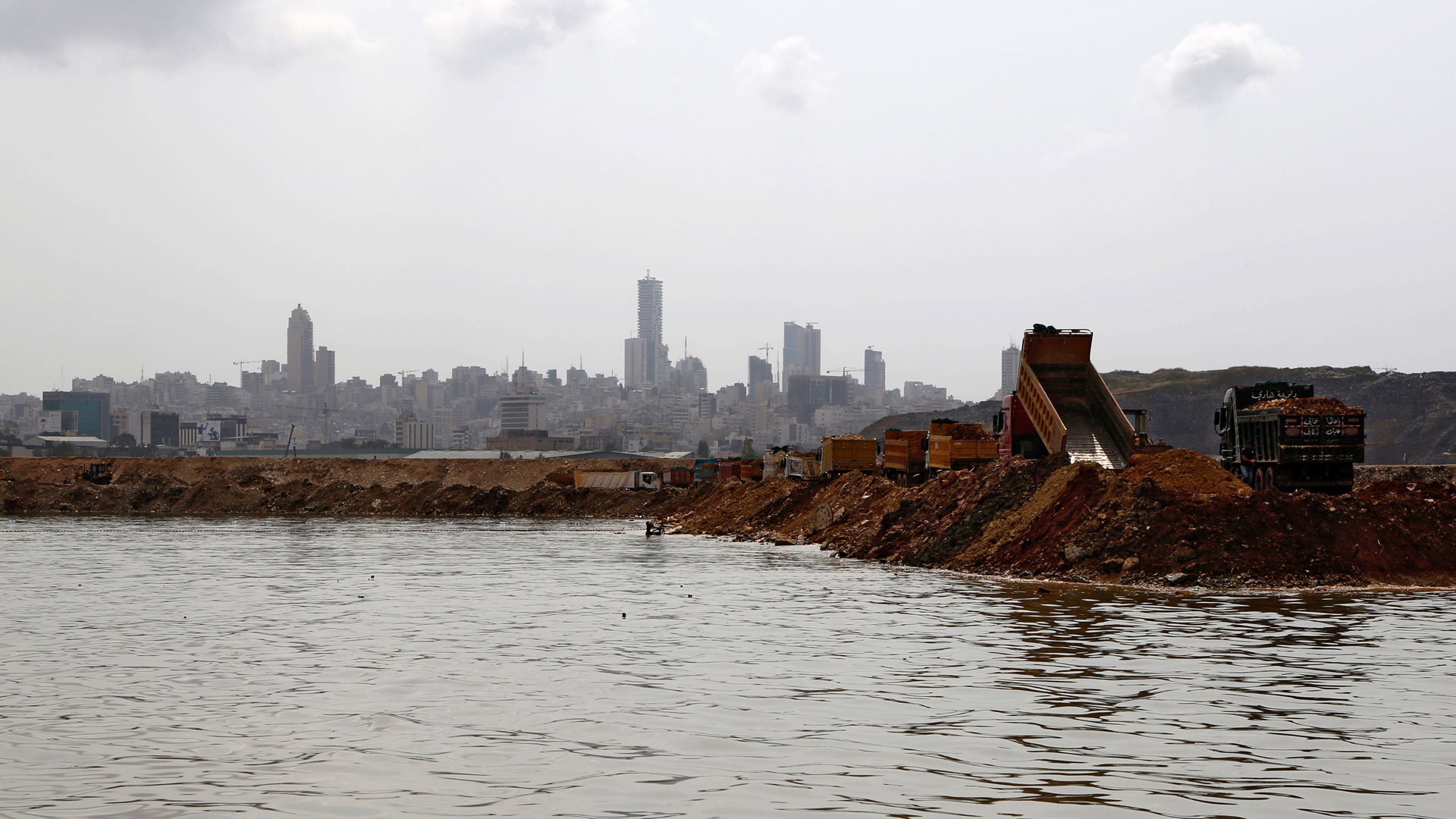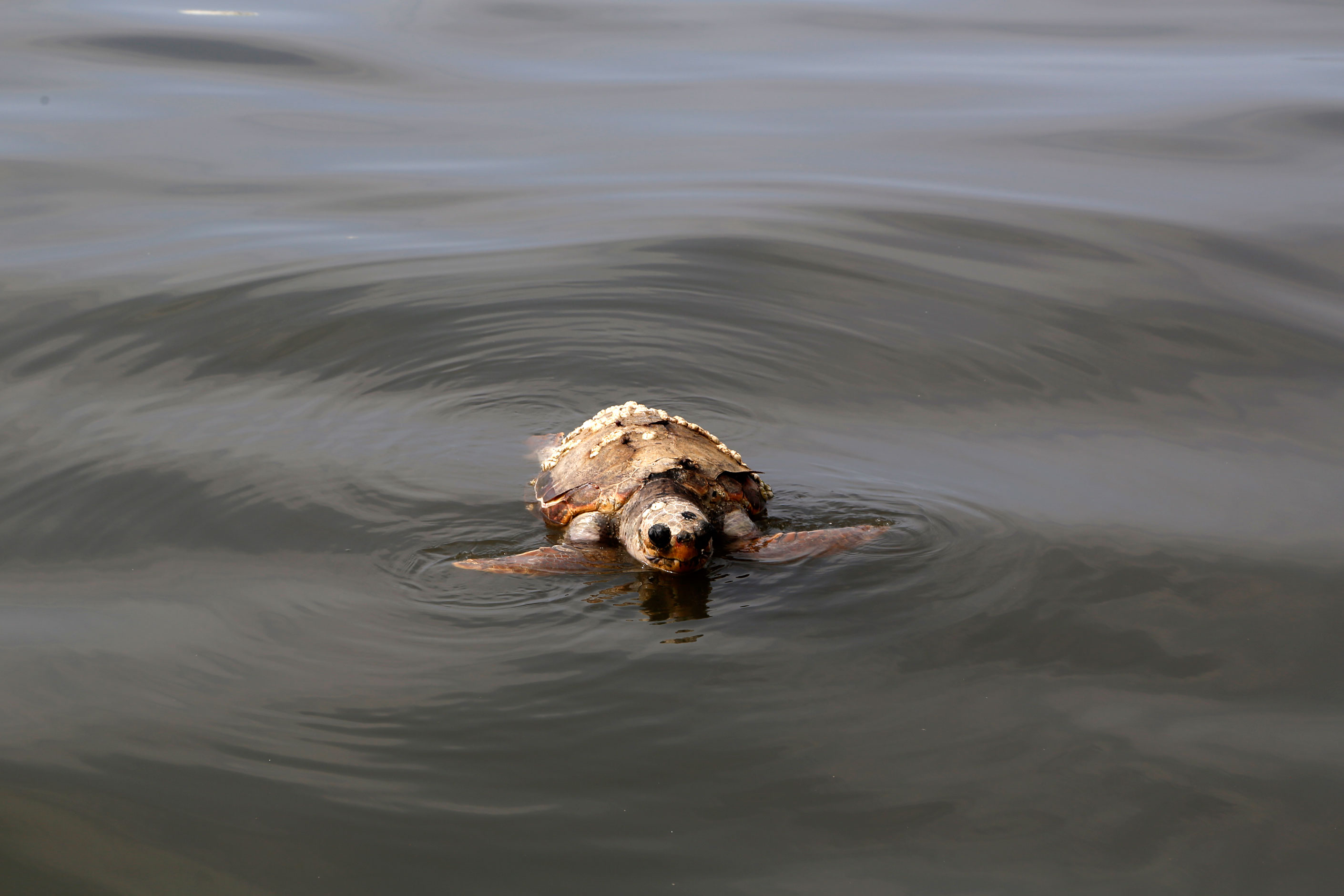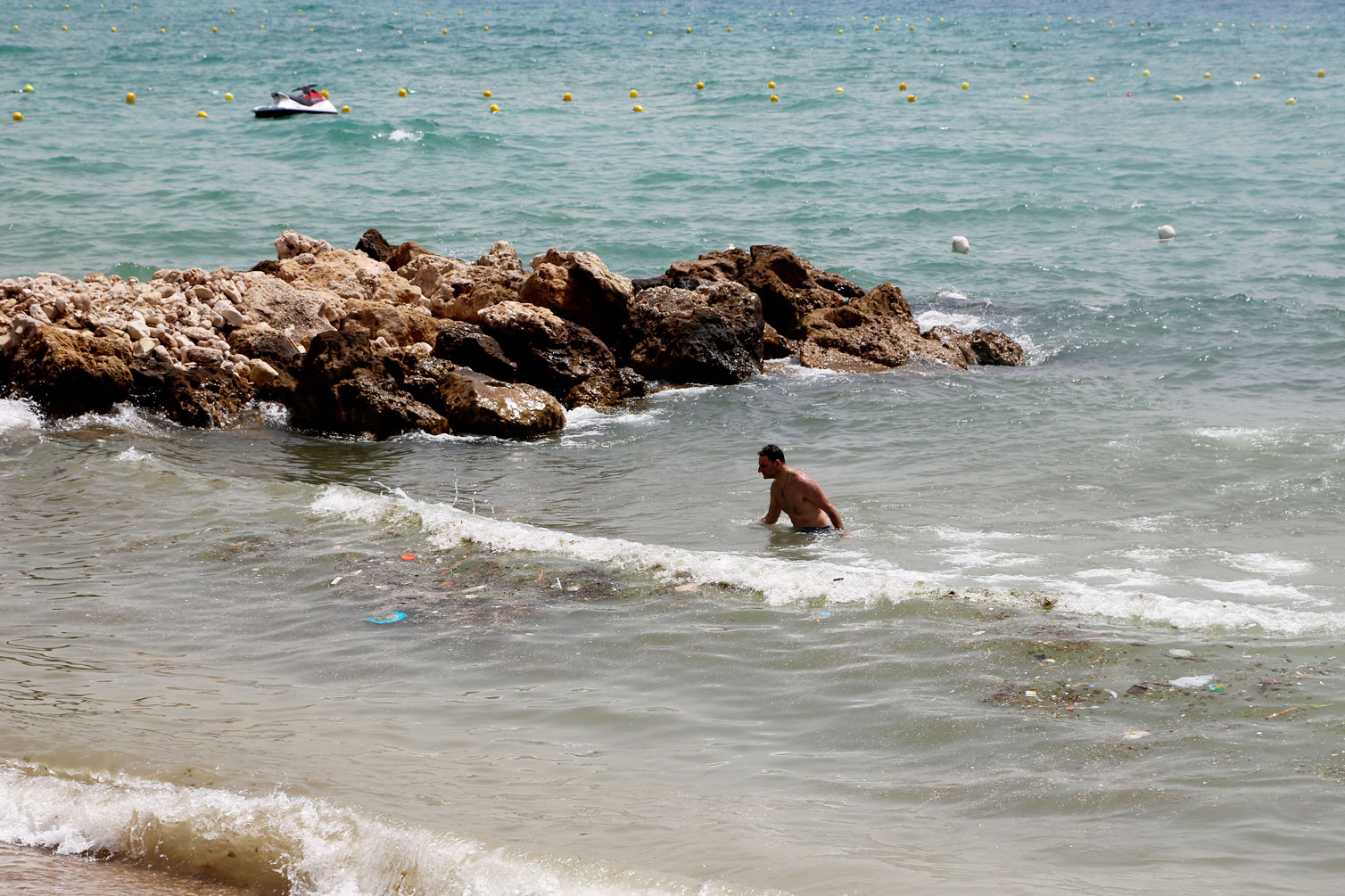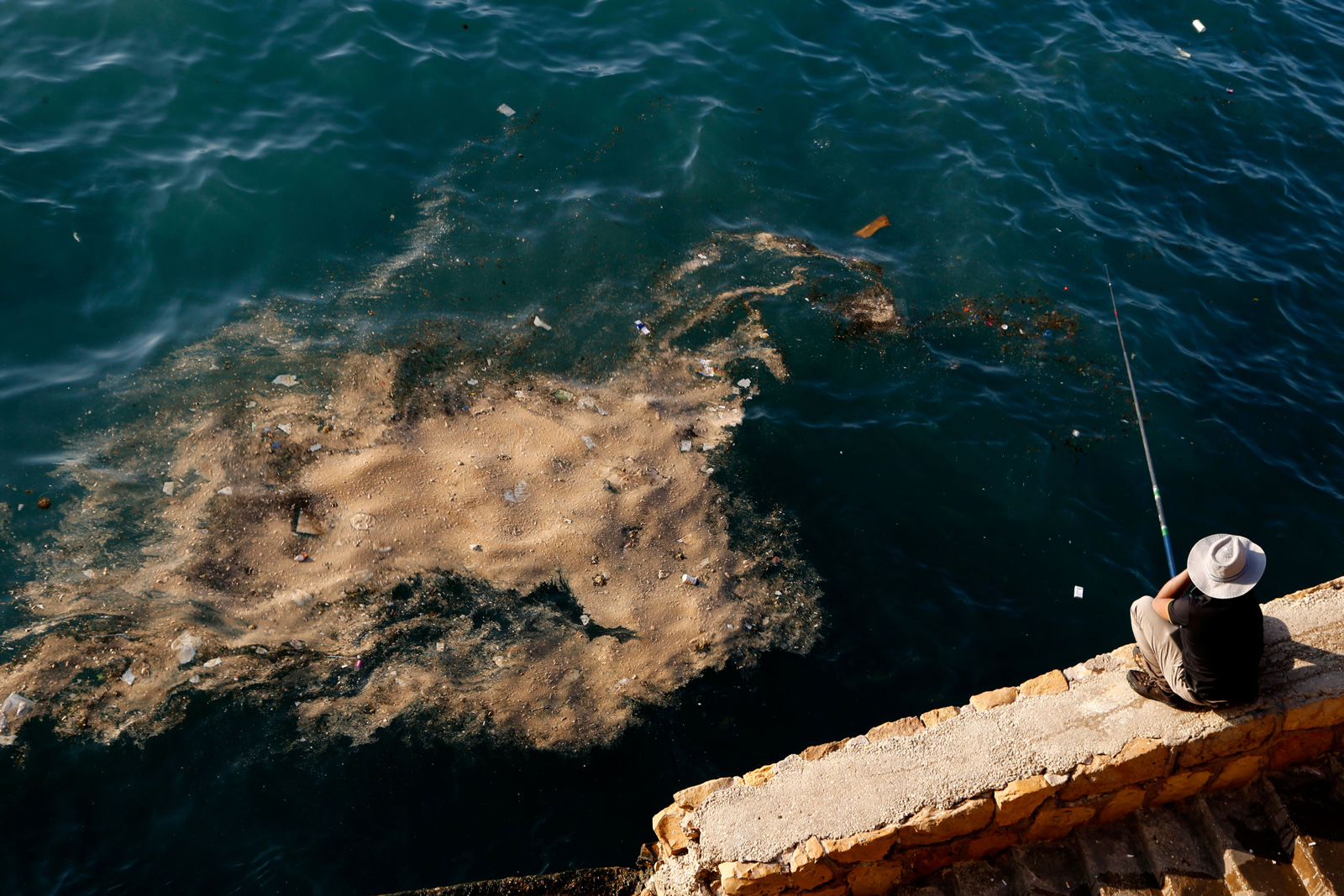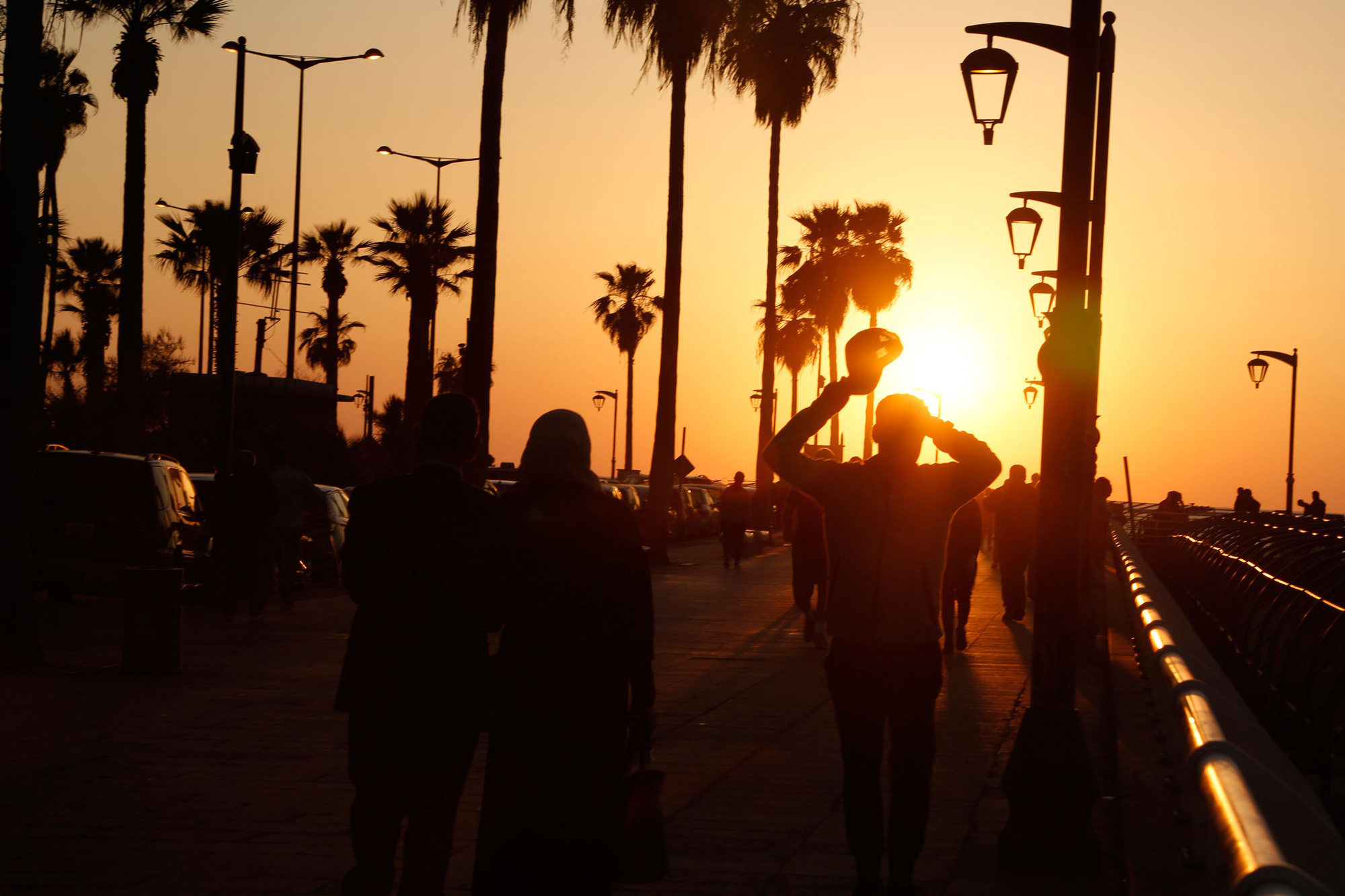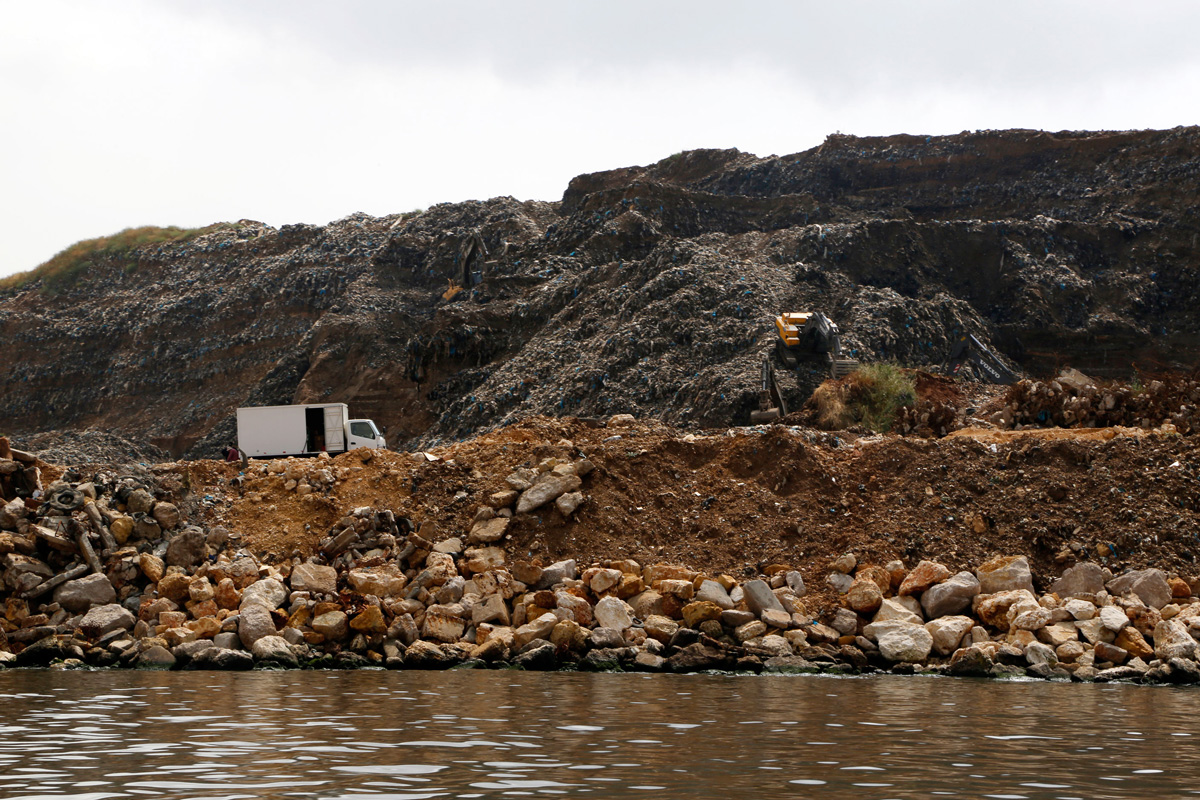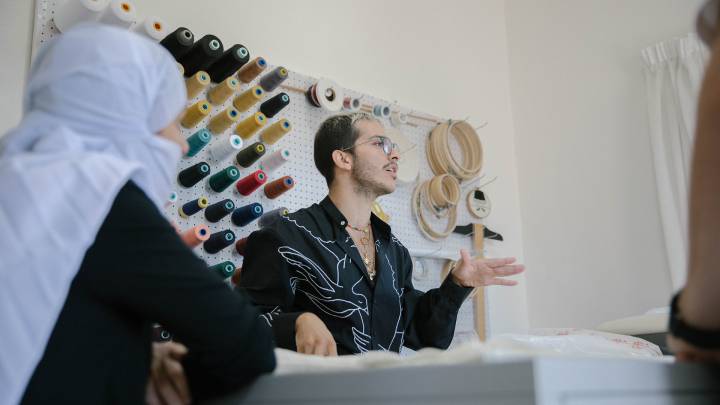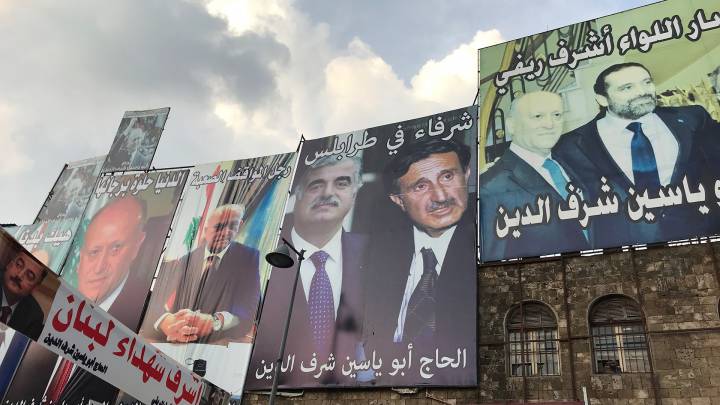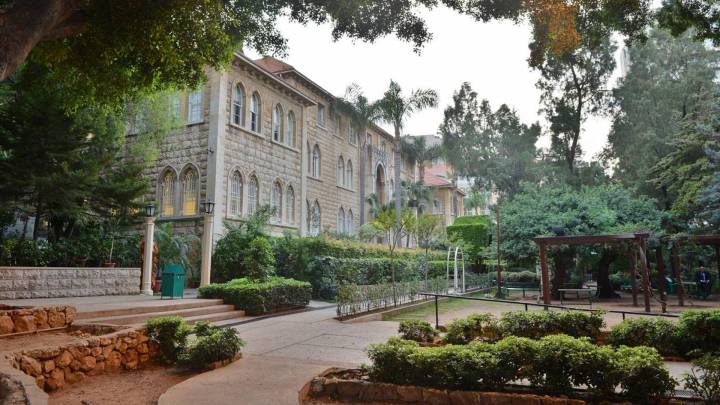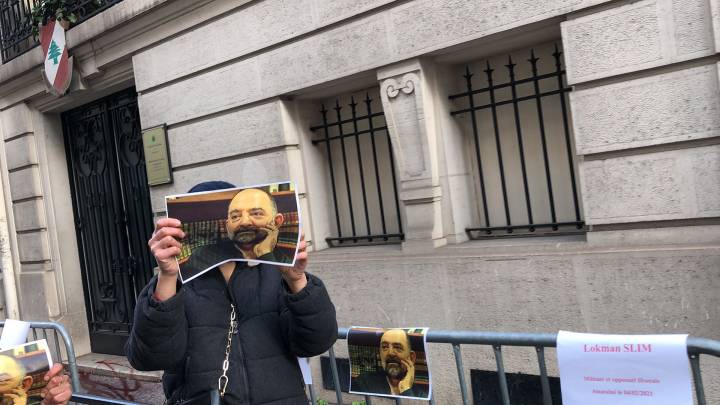Lebanon’s Khalil Gibran wrote: “In one drop of water are found all the secrets of all the oceans.” What is found today in one drop of water in Lebanon may be toxic: a threat to the health of citizens, marine life and the Mediterranean.
On April 22, Earth Day, a group of activists in Lebanon blocked access to the Costa Brava landfill for garbage trucks, in a protest against environmental pollution. It granted but brief relief to the grim sight of unprocessed trash being pushed into the Mediterranean. The symbolic rally was designed to raise awareness of the dangers of the unsanitary landfills around Beirut, the capital.
Lebanon’s fraught relationship with waste disposal is well known. In 2015, the YouStink protest movement coalesced around the collective outrage over trash being left in the streets of Beirut to rot after the main landfill was closed, as well as political corruption and incompetence. It grew to such a size that it threatened the political stability of the country. But while the trash was in the end removed from the streets to placate citizens, the cure may have been worse than the illness.
The two landfills, Costa Brava and Bourj Hammoud, are both located on the sea’s edge, and despite concrete barriers, leachates – noxious liquids that drain from a landfill – are flowing into the Mediterranean. Perhaps more worrying is that the contractors operating the civil war-era Bourj Hammoud landfill – known as Garbage Mountain by locals – are dumping untreated waste directly into the sea as part of the land reclamation process. News of this was greeted with a shrug of the shoulders by Lebanon’s Minister of the Environment, Tarek Khatib.
It remains unknown how these measures will affect the natural environment of Lebanon and that of its Mediterranean neighbours. Fishermen have complained of nets filled with trash rather than fish, while fish have washed up dead. Other sea life is also suffering: when a photographer for zenith visited the area around the Bourj Hammoud landfill, a dead sea turtle floated in the shallow waters. Beaches have sections of sand completely covered in plastic trash, as well as submerged garbage floating in the warm water. But landfills aren’t the only worry: untreated sewage from the city’s poorly functioning reticulation system also flows into the sea, such as on Ramlet el Baida, the last public beach in Beirut.
Polluting a lake
There is an element of incredulity among some Lebanese that such events are taking place. “We are polluting all the Mediterranean – it’s a lake,” says Wadih al-Asmar, a social activist and organiser of YouStink. “We are the only country in the world that builds a dump site, Costa Brava, near an airport! We have created a ‘restaurant’ for the migratory birds to come and feed, causing a real threat to the engines and safety of the aircraft nearby.”
Feeding birds aren’t the only threat to passing airplanes. Organic waste is sent directly to landfills, instead of being sorted and composted. In landfills it undergoes anaerobic decomposition, producing methane, a combustible gas. Planes flying over the Costa Brava landfill are at risk of exploding if there is an electrical short on their surface, says Hussein Hassan, Professor of Food Safety at the Department of Natural Sciences at the Lebanese American University (LAU). Efforts to close down the dump have been blocked by the courts. Experts warn of dire effects on people and the environment. “If the situation is not addressed properly, Lebanon will face long-term and short-term consequences for the health of its citizens,” says Hassan.
But quite what those consequences may be, no one is yet in a position to say, with no comprehensive report on the level of water pollution presently completed, especially with respect to the two active dumps on the shoreline, says Hassan. Outbreaks of gastroenteritis and typhoid have been reported, but the more serious threats are the long-term effects caused by contamination of water with heavy metals such as lead, arsenic and cadmium, as well as other carcinogens, which may cause cancer and other serious human health issues.
An Italian sailboat, the Mediterranea, has been collecting samples of plankton along the Mediterranean coastline for two years, to measure the health of the sea. In April this year, it took samples en route from Cyprus to Lebanon (but outside official Lebanese waters) to be examined by experts at European universities. Samples from the coastlines off the Greek islands of Zakynthos and Elafonissos had already been tested, revealing the presence of micro plastics and the need for environmental attention.
Serious pollution in the water is never contained: the Mediterranean Sea is interconnected, and what happens in one country eventually affects neighbouring coastlines, says Dr Priscilla Licandro, the lead researcher for the project, initially carried out with the Sir Alister Hardy Foundation for Ocean Science (SAHFOS) in the UK. The collection of plankton samples by the Mediterranea is one way to monitor the state of health and biodiversity of its coastlines. Measuring biodiversity is vital to establish the condition of the sea, and it influences maritime policies at EU level. The samples collected near the Lebanese coastline still need to be examined, and the American University of Beirut (AUB) is also conducting studies to monitor and assess the levels of water pollution in the country, says al-Asmar.
Meanwhile, the dumps in Beirut are by no means the only water problem facing Lebanon. The country is building a $300m dam north of the capital on ground that experts have warned is too porous to retain much water; and the Litani River and dam area is highly polluted. In Beirut, the implementation of the sewage waste plan would also help lower water pollution levels. Unfortunately, the plan is not yet operational due to a lack of funds and of taxation on sewage waste treatment plants, says Bassam Kantar, a journalist and civil activist.
There are some areas of improvement: at the height of the garbage crisis in the summer of 2015, there were roughly 400 hazardous wastes sites operating across Lebanon. Today, according to al-Asmar, the figure is closer to 200. There are also some positive examples of measures implemented to treat waste in some municipalities, but too few of them, he says.
One positive outcome from Lebanon’s perpetual waste crisis has been the strengthening of civil society. Civic movements have emerged, determined to take an active role in monitoring the situation and safeguarding citizens’ most basic civic and health interests. Kantar says the 2015 crisis “helped shape a strong civil society movement in the country”, though he sees some limitations. “On the one hand, Lebanese civil society is proposing sustainable environmental solutions to manage solid waste, such as sorting or recycling.” At the same time, however, civil society is also having a negative impact by applying a ‘not in my backyard’ attitude.
Civil society has been monitoring and pressing the government for transparency in its waste treatment solutions, including research and impact studies. One of the missing scientific tools needed to build a holistic plan for the entire country is a comprehensive assessment of water pollution throughout Lebanon. On a more local level, entire neighbourhoods have launched initiatives or organised and volunteered to clear trash from beaches and the countryside. In response to more and more trash floating ashore, NGOs have begun to raise awareness of the problem by organising clean-ups that engage local communities.
‘Everything is polluted’
While various groups may have different ideas about precisely how to tackle the problem, they all share a common objective and concern: the need to find solutions to the waste crisis. “We are still a civil war country, and 50 to 60 per cent of our garbage is organic waste,” says YouStink’s al-Asmar. He is in favour of a decentralised system where municipalities take the lead and are made responsible for the garbage. The government should have oversight, and should put in place guidelines for municipalities and ensure they are respected. Transparency and responsibility are a requirement. Meanwhile, proper sorting has to be implemented if incinerators are to be used effectively, says al-Asmar. He believes the EU has to put pressure on the government to ensure that sorting is done. “[The government] just wants to incinerate everything without sorting first,” he exclaims.
LAU’s Hassan sees a similar picture. “To deal with waste effectively, there needs to be reduction at the source, recycling (including composting), incineration and landfills. The problem in Lebanon is that the waste is sent to the incinerators without being treated first.” If it were, the amount of waste reaching the landfills would be significantly reduced, he believes. It is also vital to eliminate landfills that go directly into the sea and waterways, says Hassan. Polluted internal waterways used by farmers to irrigate crops create further health issues.
There have been some positive measures implemented by municipal authorities, for example establishing sorting at the source and composting in the Beit Mery municipality east of Beirut and in Bikfaya in the Mount Lebanon district. But there are too few sorting plants, says al-Asmar. He believes that just 10 to 20 municipalities across Lebanon (the country has over a thousand) have implemented positive measures. Overall, the problem remains vastly unaddressed. In particular, what is still lacking is a clear governmental strategy to resolve the issue for the entire country, he believes.
Nothing better illustrates the failure of governance than the Costa Brava and Bourj Hammoud landfills, and the flow of waste into the sea. These two sites continue to galvanise activists. A pending court case could see Costa Brava closed, but – as seen in 2015 – without a real solution from the government and authorities, the problems remain. At stake is the fate of an entire country’s waste management policy, the future of its environment and the health of its people. Al-Asmar says the government could and should be doing a lot more to preserve the environment. “Everything is polluted in this country. There is a prevalent ‘end of era’ attitude that prevails in our governing class.”
A Brief History of Waste in Lebanon
The issue of waste management in Lebanon is not new. Before the Lebanese Civil War (1975-1990), the municipalities were in charge of the garbage collection. It was their responsibility to treat and collect waste. Yet even then it was not well coordinated, and was far from satisfactory. The civil war was the defining event for modern Lebanon, but also for its waste collection industry. During the chaos of war, many countries – including Italy, Germany and Belgium – exported toxic waste to Lebanon, sometimes selling it to unscrupulous businessmen who simply dumped the waste without treatment in informal dumpsites, including Bourj Hammoud.
This practice was banned once Lebanon became signatory to the Basel Convention on the Control of Trans-Boundary Movements of Wastes and their Disposal (1989), an international treaty designed to reduce the movement of toxic waste from developed countries to less developed nations. But still today, there is no knowledge of what waste actually lies buried in the dump site. Walid Al Asmar believes that even toxic nuclear waste may still be stored in Bourj Hammoud. After the war, part of the waste treatment process underwent privatisation, but plans to recycle the waste were implemented to only a very modest extent.
